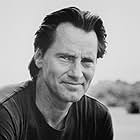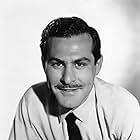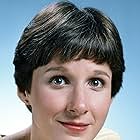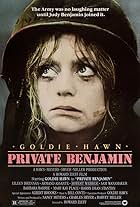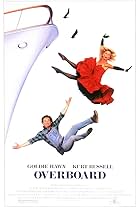The life of super-yuppie J.C. is thrown into turmoil when she inherits a baby from a distant relative.The life of super-yuppie J.C. is thrown into turmoil when she inherits a baby from a distant relative.The life of super-yuppie J.C. is thrown into turmoil when she inherits a baby from a distant relative.
- Awards
- 5 nominations total
- Director
- Writers
- All cast & crew
- Production, box office & more at IMDbPro
Storyline
Did you know
- TriviaWhen Kristina and Michelle Kennedy were in college, they found out that Diane Keaton was doing a book signing in Southampton, New York. They showed up and when Keaton was doing signings, they placed the photo for Keaton to sign. Keaton remarked on the photo that she'd been thinking about the twins the other day. When she went to sign, she looked at the sisters, back to the photo and realized it was them. Keaton subsequently got up and hugged them both. The sisters later went onto become teachers.
- GoofsIn the beginning of the film, the narrator states that J.C. has a corner office. When the office appears a few minutes later, it's in the middle, with a window.
- Quotes
Delivery Boy: [confirming J.C.'s delivery order] One cold mist humidifier, one electric steam vaporizer, one baby thermometer, one baby Tylenol, baby nose drops, baby cough medicine and... bottle of Valium?
J.C. Wiatt: Oh, yeah, uh... that's for me.
Delivery Boy: [nods] Mm.
- SoundtracksEverchanging Times
Written by Burt Bacharach, Carole Bayer Sager and Bill Conti
Performed by Siedah Garrett
Courtesy of Qwest Records
Produced by Burt Bacharach, Carole Bayer Sager and David Foster
Featured review
In the opening scenes of Baby Boom, set against a back drop of hustling and bustling women in the workplace, Linda Ellerbee provides us the following commentary:
"Sociologists say the new working woman is a phenomenon of our time. Take J.C. Wyatt for example, graduated first in her class at Yale, got her M.B.A. at Harvard. Has a corner office at the corner of Th and park. She works 5 to 9, makes six figures a year and they call her the "Tiger Lady". Married to her job, she lives with an investment banker married to his. They collect African Art, co-own their own co-op and have separate but equal IRA accounts. One would take it for granted that a woman like this has it all. One must never take anything for granted."
And that my friends sets up Baby Boom in a manner far better than I could even begin to. And why must one never take anything for granted? Thought you'd never ask. Just as J.C. Wyatt (Diane Keaton)is about to be made a partner in the company she works for, and a few hours before she is to have the most important business meeting of her career, J.C. is left an inheritance by some long forgotten relatives. That inheritance turns out to be cute and charming Baby Elizabeth(Kristina and Michelle Kennedy), dumped on J.C. at the airport. It seems since J.C. is the only known surviving relative, it is left to her to care for Elizabeth. Thus we end up with the first half of our fish out of water story and it's a dandy, thanks in large part once again to Miss Keaton's wonderful comedic timing, and the fact that we like and admire her character. In a formulaic comedy such as this, the value of that is inestimable.
In the early going we know that much of what we see will be how well J.C. copes with being an executive while trying to raise an infant, a job she is totally unprepared for. As for her "investment banker" Steven, whom she shares the co-op with, playing father is not his idea of a good time and he quickly makes his exit. This is J.C.'s and Elizabeth's story, so obviously he is not needed. The film could have easily gone off course in the early going, making it strictly a comedy of slapstick, but thanks to a good script by Nancy Myers and Charles Shyer, it quickly steers away from that. What we do see is J.C. not only quickly learning to care for her child, but also figuring out how to juggle motherhood and an executive position at the same time. Of course nothing in the film world is easy and circumstances soon force J.C. and Elizabeth out of New York City to the snowy country side of Vermont, and we get our second fish out of water story. It is here that J.C. meets Dr. Jeff Cooper (Sam Shepherd), the town veterinarian and a romantic interest for J.C.
In order to move their film along at a nice clip, Meyers and Shyer, do take some licenses and shortcuts. How J.C. obtains Baby Elizabeth is a little suspect, as is how quickly J.C. purchases a house in Vermont, just from a newspaper ad. In films of this nature there is nothing wrong with taking a few shortcuts if it helps to get from important point A to more important point B. It's the same thing that happens later, as we see J.C. try to build a new business. There is no doubt that in the real world, it doesn't quite work that way, but again, if this were a dramatic true life story, things like that might matter. For this lightweight comedy, it's just not important.
Another thing the director Charles Shyers does is make good use of the Kennedy twins as Baby Elizabeth. In any film where a child is an important part of what is happening on screen many directors overplay the cuteness bits. Shyers seems to know exactly when Elizabeth is important to what is happening in the scene and when she is not. He never dwells or lingers too long on closeups of her, and he does not develop what I call the "cute kid syndrome" whereas the director overplays, overdoes, or rams a child actor down our throats when it's not needed. Shyers knows this is Keaton's film, and never forgets that. My hat's off to him.
One could easily argue, as some have, that the Shyers have made a comedy about a women's place in the world. Perhaps they have, but I don't agree. At no point did I think they were telling us what women in general should or should not do with their careers. What they are saying, is that all of us, women and men alike, should be able to make personal choices that have nothing to do with our careers and be able to do it without being penalized for it. It's a philosophy I happen to agree with, and when I do that you get my grade, which for Baby Boom adds up to a B+.
"Sociologists say the new working woman is a phenomenon of our time. Take J.C. Wyatt for example, graduated first in her class at Yale, got her M.B.A. at Harvard. Has a corner office at the corner of Th and park. She works 5 to 9, makes six figures a year and they call her the "Tiger Lady". Married to her job, she lives with an investment banker married to his. They collect African Art, co-own their own co-op and have separate but equal IRA accounts. One would take it for granted that a woman like this has it all. One must never take anything for granted."
And that my friends sets up Baby Boom in a manner far better than I could even begin to. And why must one never take anything for granted? Thought you'd never ask. Just as J.C. Wyatt (Diane Keaton)is about to be made a partner in the company she works for, and a few hours before she is to have the most important business meeting of her career, J.C. is left an inheritance by some long forgotten relatives. That inheritance turns out to be cute and charming Baby Elizabeth(Kristina and Michelle Kennedy), dumped on J.C. at the airport. It seems since J.C. is the only known surviving relative, it is left to her to care for Elizabeth. Thus we end up with the first half of our fish out of water story and it's a dandy, thanks in large part once again to Miss Keaton's wonderful comedic timing, and the fact that we like and admire her character. In a formulaic comedy such as this, the value of that is inestimable.
In the early going we know that much of what we see will be how well J.C. copes with being an executive while trying to raise an infant, a job she is totally unprepared for. As for her "investment banker" Steven, whom she shares the co-op with, playing father is not his idea of a good time and he quickly makes his exit. This is J.C.'s and Elizabeth's story, so obviously he is not needed. The film could have easily gone off course in the early going, making it strictly a comedy of slapstick, but thanks to a good script by Nancy Myers and Charles Shyer, it quickly steers away from that. What we do see is J.C. not only quickly learning to care for her child, but also figuring out how to juggle motherhood and an executive position at the same time. Of course nothing in the film world is easy and circumstances soon force J.C. and Elizabeth out of New York City to the snowy country side of Vermont, and we get our second fish out of water story. It is here that J.C. meets Dr. Jeff Cooper (Sam Shepherd), the town veterinarian and a romantic interest for J.C.
In order to move their film along at a nice clip, Meyers and Shyer, do take some licenses and shortcuts. How J.C. obtains Baby Elizabeth is a little suspect, as is how quickly J.C. purchases a house in Vermont, just from a newspaper ad. In films of this nature there is nothing wrong with taking a few shortcuts if it helps to get from important point A to more important point B. It's the same thing that happens later, as we see J.C. try to build a new business. There is no doubt that in the real world, it doesn't quite work that way, but again, if this were a dramatic true life story, things like that might matter. For this lightweight comedy, it's just not important.
Another thing the director Charles Shyers does is make good use of the Kennedy twins as Baby Elizabeth. In any film where a child is an important part of what is happening on screen many directors overplay the cuteness bits. Shyers seems to know exactly when Elizabeth is important to what is happening in the scene and when she is not. He never dwells or lingers too long on closeups of her, and he does not develop what I call the "cute kid syndrome" whereas the director overplays, overdoes, or rams a child actor down our throats when it's not needed. Shyers knows this is Keaton's film, and never forgets that. My hat's off to him.
One could easily argue, as some have, that the Shyers have made a comedy about a women's place in the world. Perhaps they have, but I don't agree. At no point did I think they were telling us what women in general should or should not do with their careers. What they are saying, is that all of us, women and men alike, should be able to make personal choices that have nothing to do with our careers and be able to do it without being penalized for it. It's a philosophy I happen to agree with, and when I do that you get my grade, which for Baby Boom adds up to a B+.
- clydestuff
- Mar 13, 2004
- Permalink
- How long is Baby Boom?Powered by Alexa
Details
- Release date
- Country of origin
- Language
- Also known as
- Baby Boom - Eine schöne Bescherung
- Filming locations
- Production companies
- See more company credits at IMDbPro
Box office
- Gross US & Canada
- $26,712,476
- Opening weekend US & Canada
- $1,357,413
- Oct 12, 1987
- Gross worldwide
- $26,712,476
Contribute to this page
Suggest an edit or add missing content












